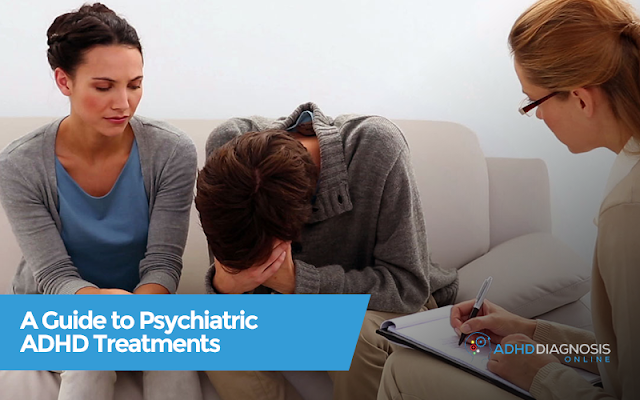A Guide to Psychiatric ADHD Treatments
ADHD treatment will significantly improve the quality of life of anyone suffering from ADHD. This disease has massively affected the adult as much as it affected the population of kids. Fortunately, the treatments of curing ADHD are proving to be very beneficial in the long term. There are several ways that people can treat ADHD, including the use of drugs and therapy, to alleviate the symptoms. Behavioral therapy and oral medication can be prescribed simultaneously by the psychiatrist for the best results.
Before moving ahead to the possible treatment guide of ADHD,
let's take a brief look at what ADHD is.
Attention-Deficit Hyperactivity Disorder
According to a statistic, 8.4% of kids are diagnosed with
ADHD, however, this figure decreases to 2.5% in adults making ADHD diagnosis age a
cause of concern amongst parents of young kids. In this article, we aim to
provide the basics of understanding ADHD and a quick guide to psychiatrist treatment.
Medication through Oral Prescription:
While oral medications alone can not cure ADHD, they can
help monitor and alleviate common symptoms such as impulsiveness, inattention,
and hyperactivity. Nevertheless, ADHD medications have adverse effects
including feeling jittery, loss of appetite, sleep disturbances and change of
mood. Some common medications can include long-acting stimulants, Short-acting
stimulants, anti-depressants, etc. It is therefore advisable for the guardian
or parent to perform ADHD
Assessment before taking any medication. This will help scrutinize the
severity of the disease and will produce an effective course of action.
Behavioral therapy
for ADHD
One of the most effective actions recommended along with
oral medication is Behavioral therapy. This therapy is aimed at learning or
enhancing good practices and eliminating unexpected or problem behavior. The
three common types of behavioral therapies are; talk therapy, cognitive
behavioral therapy, and family therapy.
1.
Talk therapy
Talk therapy, involves exactly what it says, talking with a
professional psychiatrist. The behavior management specialist will research
during psychotherapy issues resulting from ongoing failure trends, workplace
problems, academic challenges, relationship problems and other issues related
to self-importance. Through this therapy, the patient will be able to identify
and remove any feelings of poor self-esteem, carrying emotional baggage, and
feelings of embarrassment and shame. The psychiatrist will be able to catch the
root cause of the disease and help alleviate the symptoms.
2. Cognitive-Behavioral Therapy
Cognitive-behavioral therapy helps people recognize negative
beliefs and behaviors that are likely to cause difficulties in their lives.
Psychiatrists can possibly change their mindset and provide more support by
making them understand that poor thinking and negative behavior is a result of
unsatisfactory expectations and years of struggle. A psychiatrist will help
focus on the practical aspects of one’s life and help them in developing
solutions to such problems.
3.
Family
Therapy
ADHD can ruin relationships through the impulsive behavior
of the patient, so therapists often prescribe therapy for patients and
families. The problems created at times in life by certain relations and in
family units can trigger ADHD. Family therapy forces people and their loved
ones to dwell on these issues and discuss how the whole family can
constructively approach them.
Final Word
It can be a difficult and daunting process to handle people
with ADHD. It is therefore important to work with a qualified professional who
can asses mental health and create an individualized treatment plan with
effective medications and behavioral therapy. ADHD is indeed a chronic disease
but with proper care, it can be effectively reduced.




Comments
Post a Comment